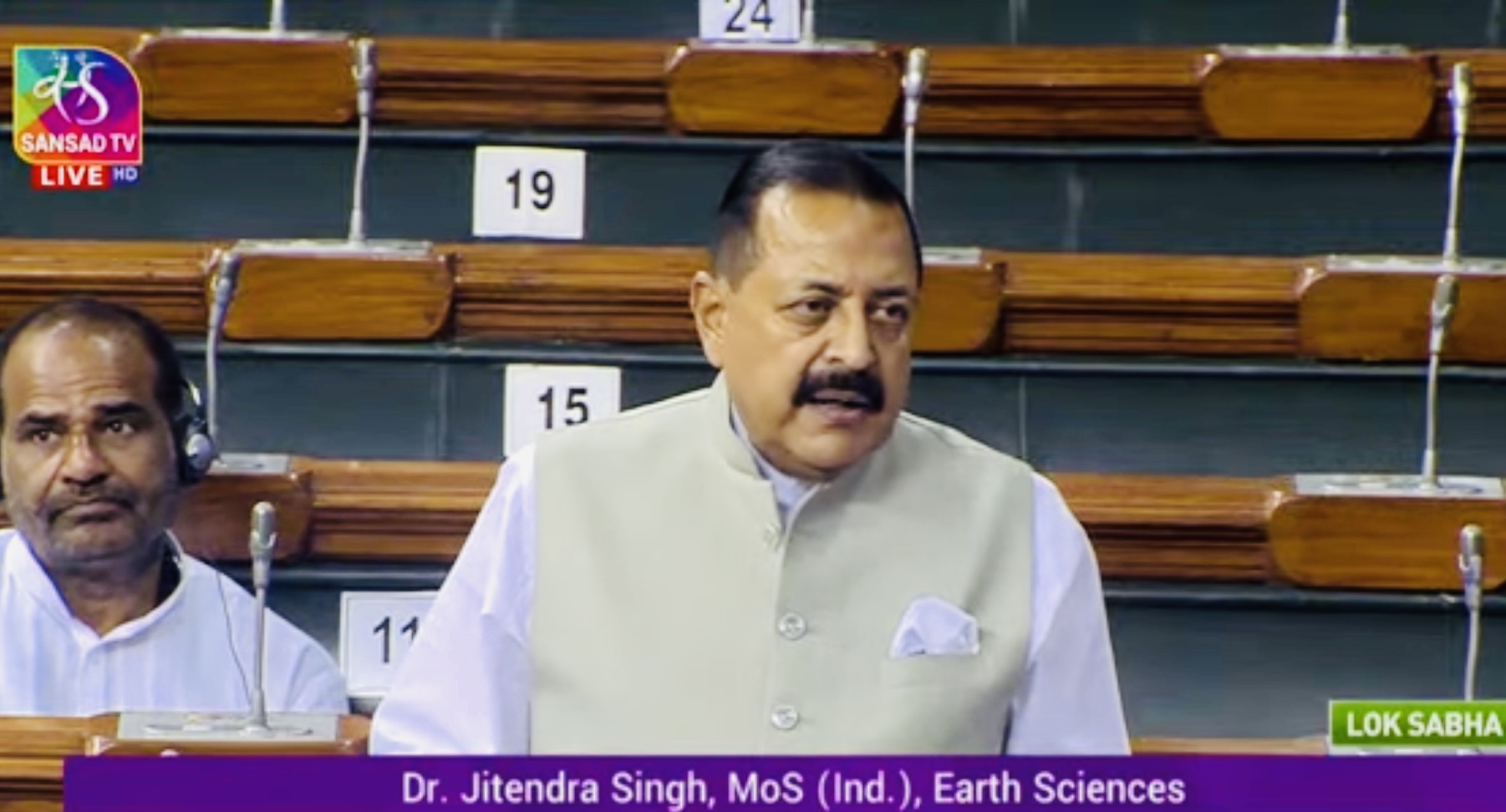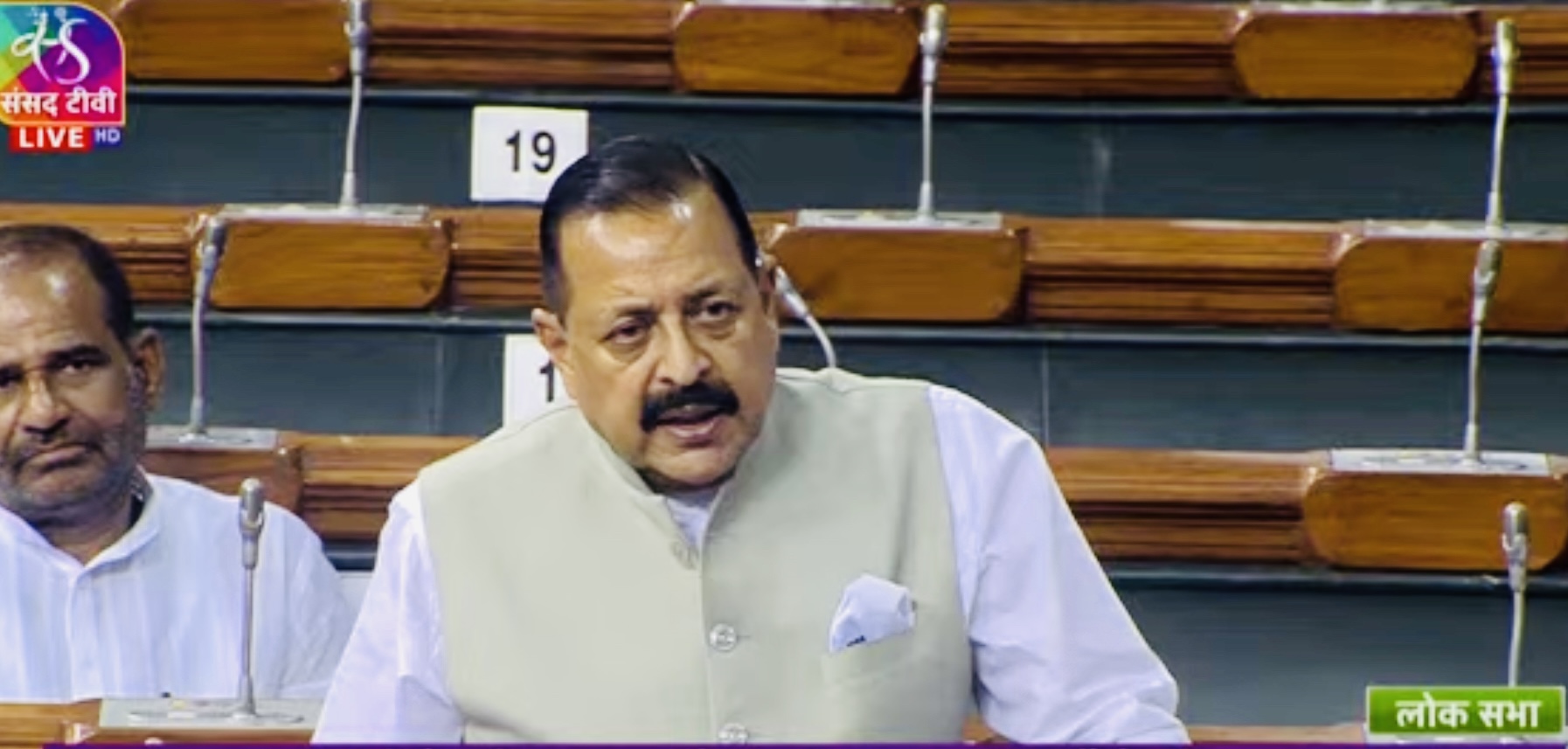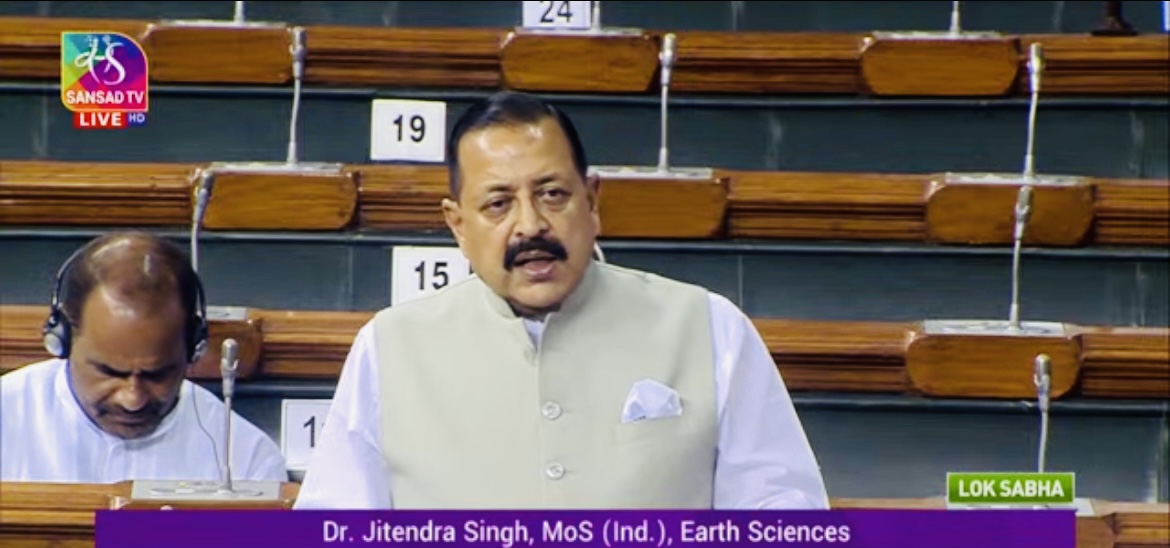Ministry of Earth Sciences
Lok Sabha passes the Indian Antarctic Bill, 2022 aimed at having India’s own national measures for protecting the Antarctic environment and dependent and associated ecosystem
Introducing the Bill in Lok Sabha, Union Minister of Earth Sciences Dr Jitendra Singh says, it provides harmonious policy and regulatory framework for India’s Antarctic activities through well-established legal mechanism
The Bill proposes to set-up Indian Antarctic Authority (IAA) under the Ministry of Earth Sciences as the apex decision making authority: Dr Jitendra Singh
Posted On:
22 JUL 2022 6:59PM by PIB Delhi
Lok Sabha today passed the Indian Antarctic Bill, 2022 moved by Minister of Earth Sciences Dr Jitendra Singh. The Bill aims at having India’s own national measures for protecting the Antarctic environment as also the dependent and associated ecosystem.
Speaking about the Bill, Union Minister of State (Independent Charge) Science & Technology; Minister of State (Independent Charge) Earth Sciences; MoS PMO, Personnel, Public Grievances, Pensions, Atomic Energy and Space, Dr Jitendra Singh said, the main aim is to ensure de-militarization of the region along with getting it rid of mining or illegal activities. It also aims that there should not be any nuclear test / explosion in the region.

The bill is in pursuant to India’s accession to Antarctic Treaty, the Protocol on Environment Protection (Madrid Protocol) to the Antarctic Treaty and to the Convention on the Conservation of Antarctic Marine Living Resources.
Dr Jitendra Singh pointed out that the Bill provides a harmonious policy and regulatory framework for India’s Antarctic activities through well-established legal mechanisms and will help in efficient and elective operations of Indian Antarctic Programme. It will also facilitate India’s interest and pro-active involvement in the management of growing Antarctic tourism and sustainable development of fisheries resources in Antarctic waters. It will also help in increased international visibility, credibility of India in Polar governance leading to international collaboration and cooperation in scientific and logistics fields.

Dr Jitendra Singh also elaborated that the continuing and growing presence of Indian scientists in Antarctica in the research stations with concurrent commitment to Antarctic studies and protection of fragile Antarctic ecosystem warrants adoption of domestic legislation on Antarctica consistent with its obligations as a member of Antarctic Treaty System. The enforcement of such laws will confer Jurisdiction on the courts of India to deal with any dispute or crimes committed in parts of Antarctica. Legislation of such a kind will bind the citizens to the policies of the Antarctic treaty system. This will also be useful in building credibility and enhance the status of the Country globally.

The Bill also proposed to set-up Indian Antarctic Authority (IAA) under the Ministry of Earth Sciences, which shall be the apex decision making authority and shall facilitate programmes and activities permitted under the Bill. It shall provide a stable, transparent and accountable process for the sponsorship and supervision of Antarctic research and expeditions; ensure the protection and preservation of the Antarctic environment; and shall ensure compliance by Indian citizens engaged in the Antarctic programs and activities with relevant rules and internationally agreed standards. Secretary, Ministry of Earth Sciences will be the Chairperson of the IAA and the IAA will have official members from the concerned India Ministries and decisions will be by consensus.
India today has two operational research stations in Antarctica named Maitri (Commissioned in 1989) and Bharati (Commissioned in 2012). India has successfully launched 40 annual scientific expeditions to Antarctica till date. With Himadri station in Ny-Alesund, Svalbard, Arctic, India now belongs to the elite group of nations that have multiple research stations within the Polar Regions.
The Antarctic Treaty was signed at Washington D.C. on the 1st December, 1959 and was initially signed by 12 countries. Since then, 42 other countries have acceded to the Treaty. A total of fifty-four State Parties to the Treaty, twenty-nine countries have the status of Consultative Party with a right to vote in the Antarctic Consultative Meetings and twenty-five countries are Non-Consultative Parties having no right to vote. India signed the Antarctic Treaty on the 19th August, 1983 and received the consultative status on the 12th September, 1983.
The Convention on the Conservation of Antarctic Marine Living Resources was signed at Canberra on the 20th day of May, 1980, inter alia, for the protection and preservation of the Antarctic environment and, in particular, for the preservation and conservation of marine living resources in Antarctica. India ratified the Convention on 17th June, 1985 and is a member of the Commission for Conservation of Antarctic Marine Living Resources under that Convention. the Protocol on Environmental Protection to the Antarctic Treaty was signed at Madrid on 4th October, 1991, inter alia, to strengthen the Antarctic Treaty system and for the development of a comprehensive regime for the protection of the Antarctic environment and dependent and associated ecosystems. India signed the Protocol on Environmental Protection to the Antarctic Treaty on 14th January, 1998. Antarctica lies south of 60 ñ South Latitude, which is a natural reserve, devoted to peace and science and should not become the scene or object of any international discord.
*******
SNC / RR
(Release ID: 1843988)
Visitor Counter : 6398